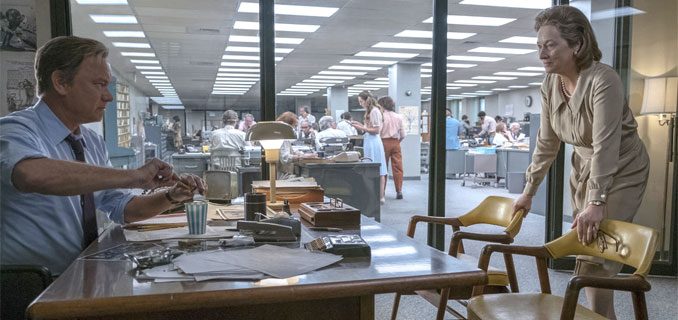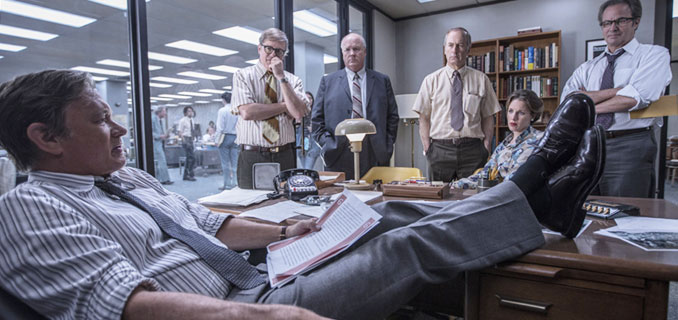
The Post
Much of the appeal of Steven Spielberg’s timely and exhilarating drama The Post lies in its misty-eyed nostalgia. It takes us back to a time when we all read printed newspapers, when journalists wore ties to the office and the women there only ran the telex machines, not the whole show. Typewriters clattered and grizzled ink-blackened men (and they were all men) laboured over linotype machines. Then when the presses started rolling, the whole building rumbled with that sexiest and most magical of all sounds – the magnificent power of print.
The sexual politics of those times are important, because this story is of one woman’s awakening and empowerment, and Spielberg hammers home its feminist message over and over. Katharine Graham (Meryl Streep) was the publisher of the Washington Post in 1971 only by chance – she got the gig because her father once owned the paper (and he had anointed her husband, whose suicide left it to her). The excitement in this rip-snorting tale of newspaper politics and journalistic ethics is the aching pain in the butt her editor Ben Bradlee (Tom Hanks) caused by wanting to publish the secret Pentagon Papers, an explosive expose of decades of official deception over the Vietnam War. That was something that could have landed both of them in jail for contempt, would almost certainly jeopardise the media company’s business interests and completely smash heiress Katharine’s close personal relationship with various Washington establishment types. Not an easy decision for anyone, especially a woman in the 70s who had lived all her life in the shadow of powerful, ego-driven men.

Tom Hanks shows us how that editing gig is actually done
Well we know what happened, the woman was not for turning. Freedom of the press triumphed and democracy survived, and a few years later, largely thanks to her newspaper, a paranoid and vindictive President (sound familiar?) was forced out of office. As we so often do in Spielberg’s movies, we cheer. But that sweet feeling leaves a bitter aftertaste. For nothing like that could happen now, not when crusading journalists no longer have employers and heroic publishers have long since thrown in the towel. I wonder if those glued to their social media feeds proudly proclaiming “I never buy a newspaper” even know what they have done. Or care. M from Jan 11. ★★★★
Review – Russell Edwards
